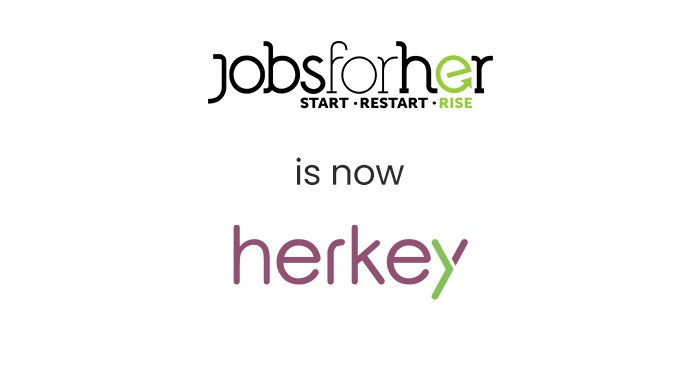How to Chase Your Dream Job: Strategies for Success
- Richa Koparday
- in
- Career Development, Expert Advice, Working Women
- |
- 24 Oct 2023

Isn’t there a difference between simply having a job and having your dream job? While any job can provide financial security, a dream job offers a sense of fulfillment and passion that goes beyond a paycheck.
In this blog post, you can delve into various strategies and tips to guide you on your journey to land that dream job.
- Self-Discovery:
- Before you embark on your quest, you need to have a clear understanding of who you are, what you're passionate about, and where your true interests lie. For example, you're an individual who has always had a knack for solving complex problems and enjoys working with numbers. This self-awareness may lead you to explore careers in data analysis or financial planning, where your analytical skills can be put to good use.
- Simultaneously, it's crucial to identify your strengths, weaknesses, and the unique skills you possess. For instance, if you have excellent communication skills and a knack for teamwork, you might find a role in project management or sales particularly appealing.
- Moreover, setting long-term career goals and understanding your core values are essential for creating a roadmap to your dream job. For example, if your values center around sustainability and environmental conservation, a career in renewable energy or environmental advocacy could be a perfect fit.
- Research and Target:
- Begin by delving into different industries to understand their dynamics and potential for growth. For instance, if you're passionate about technology and its potential to transform industries, you might research emerging tech sectors like artificial intelligence, cybersecurity, or blockchain.
- Identify the companies that resonate with your values and interests, and make a list of organizations you aspire to work for. If, for instance, you're committed to social justice and equality, organizations like Amnesty International, the United Nations, or local non-profits might be on your target list.
- Networking is often the bridge that connects you to your dream job. Building a strong professional network is crucial in today's job market. Attend industry conferences, seminars, and workshops to connect with professionals in your field. For example, if you're passionate about renewable energy, attending clean energy conferences and engaging in conversations with experts can open doors to opportunities in this sector.
- Leverage social media platforms like LinkedIn to stay in touch with your contacts and engage in meaningful discussions. Seek mentorship from experienced individuals who can provide guidance and valuable insights into your chosen career path. Connecting with a mentor in your field can provide you with invaluable advice and support as you strive for your dream job.
- Develop Marketable Skills:
- To secure your dream job, you must acquire the necessary skills and qualifications. Identify the skills and qualifications required for your target job and take proactive steps to attain them. For example, if your dream job is in digital marketing, consider taking courses or obtaining certifications in areas like SEO, content marketing, or social media advertising.
- Keep in mind that continuous skill development is essential to stay competitive in your chosen field, so always be ready to adapt and grow. The digital marketing landscape is continually evolving, so staying updated on the latest trends and technologies is a must to excel in this profession.
- Your resume and cover letter are often your first impression on potential employers. Tailor your resume to highlight relevant experiences and skills that make you a strong fit for the job. For instance, if you're applying for a graphic design position, your resume should emphasize your design skills, software proficiency, and previous design projects.
- A compelling cover letter should showcase your passion for the role and your suitability for the position. If you're seeking a role in environmental advocacy, your cover letter should convey your genuine commitment to the cause and your past involvement in relevant projects or organizations.
- Make sure to proofread and format these documents professionally, as attention to detail can make a significant difference. Typos or formatting issues can detract from your qualifications, so be sure to present yourself in the best possible light.
- Practice common interview questions to build your confidence and refine your responses. If you're pursuing a career in healthcare, for example, you might practice answering questions about your experience in patient care, your ability to handle stressful situations, and your understanding of medical ethics.
- Research the company and its culture to demonstrate your genuine interest during interviews. Develop real-life examples of your achievements to showcase your capabilities and experiences effectively. For a software developer position, you might discuss a challenging project you completed, highlighting how your problem-solving skills and teamwork contributed to its success.
- Showcase Your Online Presence:
- In the digital age, your online presence plays a significant role in your job search. Maintain a professional LinkedIn profile that highlights your skills, experiences, and accomplishments. Share industry insights, relevant articles, and your professional achievements to establish your expertise. If you're an aspiring writer, for example, sharing your well-researched articles on your LinkedIn profile can showcase your writing abilities.
- Consider creating a personal website or portfolio to showcase your work and demonstrate your commitment to your chosen field. This is particularly valuable for creative professionals like designers, photographers, or writers who can display their work in an easily accessible and organized manner.
- Landing your dream job doesn't always happen immediately. Be open to starting at an entry-level position or securing internships in your desired field. These opportunities allow you to gain valuable experience and network from within the industry. If your dream job is in the field of environmental science, an internship with a local environmental organization can provide you with practical experience and exposure to key industry players.
- As you learn and grow, you'll become more attractive to employers seeking experienced professionals. Over time, your internship or entry-level position can serve as a stepping stone to your dream job.
- Be Persistent:
- Rejection is a natural part of the job search process. Don't get discouraged by setbacks. Keep applying, seeking feedback, and making improvements to your approach. Persistence is often the key to success. For example, if you've been rejected from a job in software development, don't give up. Use the feedback you receive from interviews to fine-tune your skills and approach, and keep applying to positions that align with your goals.
- Ace the Follow-Up:
- After interviews, send thank-you notes to express your appreciation for the opportunity. Follow up with potential employers after submitting applications to reaffirm your interest and inquire about the status of your application. These actions demonstrate your professionalism and dedication. A thoughtful thank-you note can leave a positive impression on your potential employer, showcasing your courtesy and interest in the position.
- Stay Informed and Adaptable:
- The job market is constantly evolving, so staying informed about industry trends and developments is crucial. Adapt to changes and continuously improve your skill set to remain competitive. Be open to exploring new opportunities that may arise during your career journey. For instance, in the ever-changing field of digital marketing, staying up-to-date with the latest algorithms and trends in social media advertising is essential. This adaptability is what ensures you remain competitive and can leverage emerging opportunities in your dream job.
- The Importance of Learning AI:
- In our rapidly evolving world, learning about AI (Artificial Intelligence) has become increasingly important. AI is no longer confined to the realms of science fiction; it's a powerful and transformative technology that is shaping various industries. Whether your dream job is in healthcare, finance, marketing, or any other field, AI is likely to play a significant role. Understanding AI and its applications can set you apart from other job seekers.
- For example, in healthcare, AI is revolutionizing patient care through predictive analytics and diagnostic tools. In finance, AI is used for algorithmic trading and risk assessment. In marketing, AI-driven data analysis and chatbots are becoming standard practices. By learning about AI, you can adapt to these changes and contribute to the innovation and growth of your chosen industry.
Remember, the pursuit of your dream job is a journey, and this blog post serves as a guide to help you navigate that path. With the right strategy, determination, and a commitment to lifelong learning, you can transform your dream job into a reality and build a fulfilling and rewarding career. Your dream job is out there; it's up to you to make it a reality.








